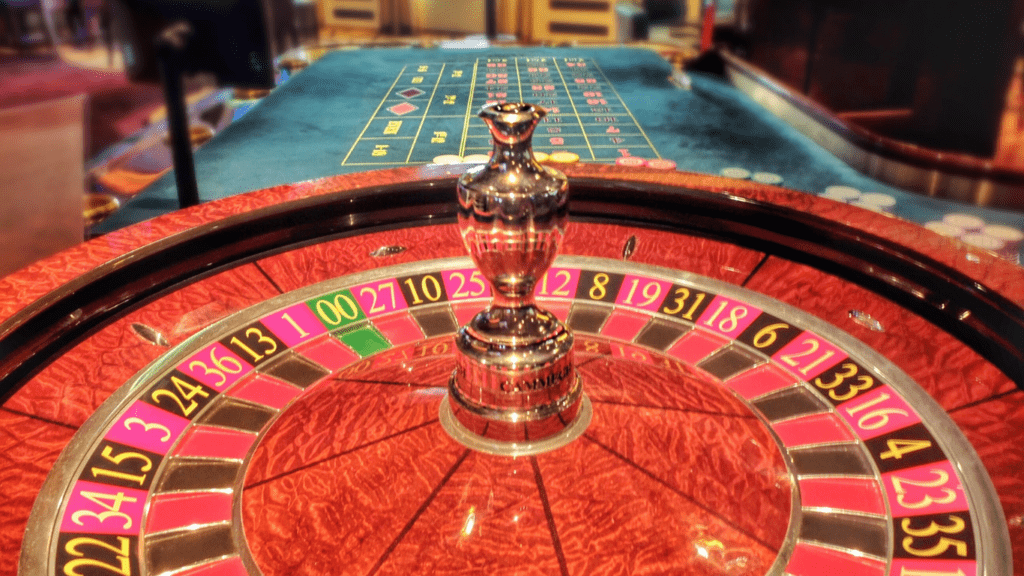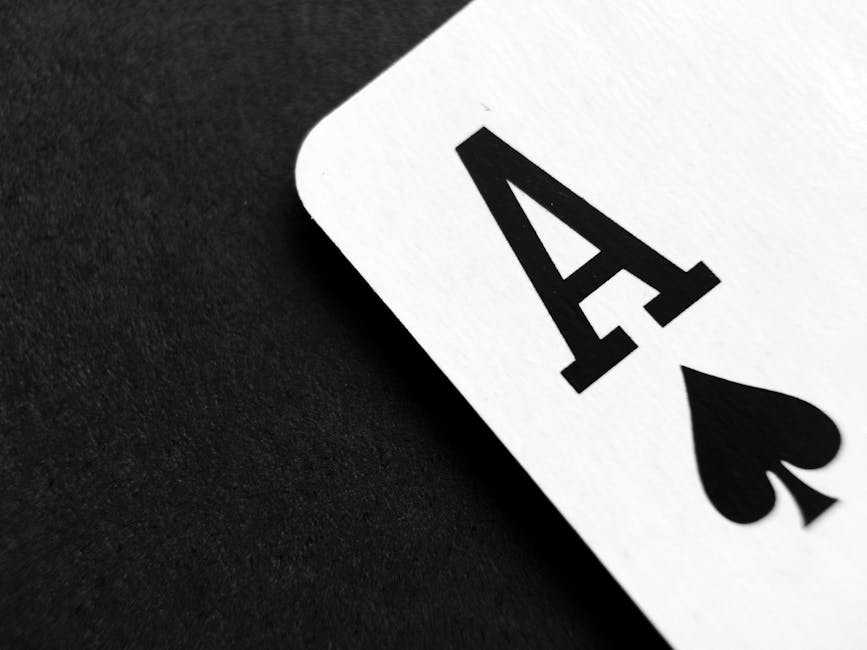Understanding the Basics
Grasping fundamental gambling principles forms the cornerstone of improving odds. First time at a casino or experienced player, mastering these basics ensures a solid foundation for strategic gameplay.
House Edge
The house edge is a critical concept. It represents the casino’s statistical advantage in any game. For instance, in American roulette, the house edge is 5.26%. Knowing this helps set realistic expectations and manage your bankroll wisely.
Bankroll Management
Bankroll management is essential for sustaining longer play. Divide your total gambling funds into smaller, manageable sessions. For example, if you bring $500, consider allocating $50 per session. This approach prevents overspending and extends your playing time.
Game Rules
Understanding game rules is paramount. Each game has specific rules that influence your odds. For instance, Blackjack offers better odds when you understand basic strategy and hand values. Learning these rules minimizes mistakes and maximizes potential returns.
Odds and Payouts
Knowing the odds and payouts of games provides a strategic edge. Calculate the probability of winning versus the potential payout. For instance, in a slot machine, payouts and winning odds vary significantly. Choose games with favorable payout structures to enhance your chances.
Practice and Experience
Practicing games enhances skill and strategy. Utilize free online versions of casino games to hone your skills without risking real money. Experience from these exercises translates into better decision-making during actual gameplay.
Understanding these basics builds a robust foundation for implementing advanced strategies and tips shared later. This foundational knowledge is key for any gambler looking to improve their odds and make more informed decisions.
Managing Your Bankroll
Managing your bankroll effectively is crucial for long-term success in gambling. It helps in controlling losses and maximizing gains.
Setting a Budget
Setting a budget is the first step in managing your bankroll. Determine how much money you’re comfortable losing. This isn’t the amount you plan to lose, but ensures you won’t be financially harmed if you do. For example, if you’re okay losing $200 a month, make sure you don’t exceed this limit. Stick to your budget regardless of winning or losing streaks. Adhering to this budget ensures you can enjoy gambling without jeopardizing your finances.
Avoiding Chasing Losses
Avoiding chasing losses is essential in bankroll management. Chasing losses involves betting more money in an attempt to recover previous losses, which often leads to even larger losses. For instance, if you’ve lost $100, don’t bet an additional $100 hoping to break even. Instead, accept the loss, take a break, and revisit your strategy. Accepting losses protects your bankroll and enables you to continue playing responsibly. Analyze your game to identify any mistakes and prevent repeating them.
Choosing the Right Games
Selecting the right games can significantly improve your chances of winning. Different games offer varying odds, so understanding which to play can make a big difference.
Games with the Best Odds
- Picking games with the best odds can enhance winning potential.
- Blackjack, for example, has a low house edge, typically around 0.5%, when played using basic strategy.
- Craps offers good odds too, especially on the pass line bet where the house edge is around 1.41%.
- Baccarat also provides favorable odds, with the banker bet house edge at approximately 1.06%.
- Video poker, when played optimally, can offer low house edges that sometimes dip below 1%.
Understanding House Edge
The house edge represents the casino’s advantage over players in any given game. A lower house edge means better odds for the player. For instance, European roulette has a house edge of 2.7%, while American roulette’s edge is 5.26% due to the extra double zero.
In blackjack, proper strategy can reduce the house edge to under 1%, but without it, the edge can be significantly higher. Knowledge about house edges helps in deciding which games to play for better odds.
Strategies for Popular Games

Choosing the right strategy for each game can greatly enhance your odds of winning. Here’s how to optimize your gameplay in blackjack, poker, and roulette.
Blackjack
Blackjack players should master basic strategy charts. These charts show the best moves based on your hand and the dealer’s upcard. Memorizing them reduces the house edge to about 0.5%. Always split aces and eights but never split tens or fives. Doubling down on hard totals of 9, 10, or 11 can also increase winning chances. Utilize card counting if allowed, as it tracks the ratio of high to low cards, giving insight into upcoming hands.
Poker
Poker demands not just skill but psychological insight. Learn different types of poker like Texas Hold’em, Omaha, and Stud to diversify your strategy. Bluff strategically to confuse opponents but don’t overdo it.
Pay attention to the position at the table; later positions offer more information from other players’ actions. Bankroll management is crucial here to sustain through variance. Observe opponents’ betting patterns to detect their strategy and adjust yours accordingly.
Roulette
Roulette involves a mix of luck and strategy. Choose European Roulette over American Roulette since it has a lower house edge (2.7% vs. 5.26%). Establish a betting system like the Martingale or Fibonacci to manage wins and losses.
Place bets on outside options like red/black or odd/even. These provide nearly 50/50 odds. Avoid betting on single numbers as the chances of winning are only 1 in 37, or 38 for American Roulette. Be aware of the table limits and adjust your strategy to maintain flexibility.
Utilizing Bonuses and Promotions
Taking advantage of bonuses and promotions can significantly enhance your gambling experience. Understanding the types and knowing how to maximize them boost your odds of winning.
Types of Bonuses
Bonuses come in several forms, each offering unique benefits. Welcome bonuses match a percentage of your initial deposit, doubling your playing funds. No-deposit bonuses let you play without funding your account first, giving you a risk-free start. Reload bonuses provide additional funds on subsequent deposits, ensuring continuous play.
Cashbacks return a portion of your losses, cushioning setbacks. Free spins often accompany slots, allowing extra chances to win without additional cost.
Maximizing Rewards
To get the most out of bonuses, meet the wagering requirements. These stipulate how many times you must play through the bonus before withdrawing winnings. Always read the fine print, ensuring the bonus applies to your preferred games.
Opt-in to loyalty programs if available, as they reward regular play with points, which you can redeem for cash or other perks. Combine multiple promotions where possible, layering benefits for better gains. Track expiry dates to ensure you use bonuses before they lapse, preventing lost opportunities.
Practicing Self-Discipline
Self-discipline ensures a safer, more enjoyable gambling experience, helping you maintain control and maximize entertainment value.
Setting Time Limits
- Allocating specific time limits for gambling sessions controls how long you play and prevents excessive time spent on games.
- Set a timer for two-hour intervals.
- Take regular breaks during these sessions to reflect on your gameplay and decisions.
- Employing time tracking apps provides additional structure, making it easier to adhere to set limits.
Recognizing Problem Behavior
Identifying problem behavior early can prevent serious issues. Look for signs like chasing losses, gambling longer than planned, or neglecting responsibilities. I maintain awareness by periodically asking myself if my gambling habits impact my daily life negatively. Seeking professional help or using responsible gambling tools, like self-exclusion programs, provides necessary support to address these behaviors.



 Bruce Dadenill – Founder
Bruce Dadenill is the visionary founder of Gamble Wins Daily. With over a decade of experience in the gambling industry, Bruce has a deep understanding of sports betting, risk management, and casino trends. His passion for delivering top-notch content on daily sports picks and gambling strategies has positioned Gamble Wins Daily as a go-to source for enthusiasts. Bruce’s leadership and dedication ensure that the site stays ahead of industry trends, offering readers valuable insights and promotions daily.
Bruce Dadenill – Founder
Bruce Dadenill is the visionary founder of Gamble Wins Daily. With over a decade of experience in the gambling industry, Bruce has a deep understanding of sports betting, risk management, and casino trends. His passion for delivering top-notch content on daily sports picks and gambling strategies has positioned Gamble Wins Daily as a go-to source for enthusiasts. Bruce’s leadership and dedication ensure that the site stays ahead of industry trends, offering readers valuable insights and promotions daily.
